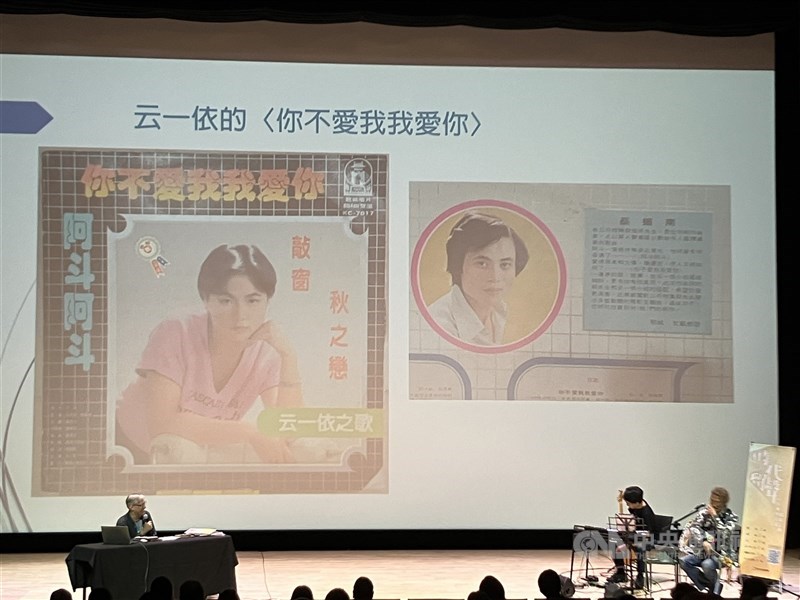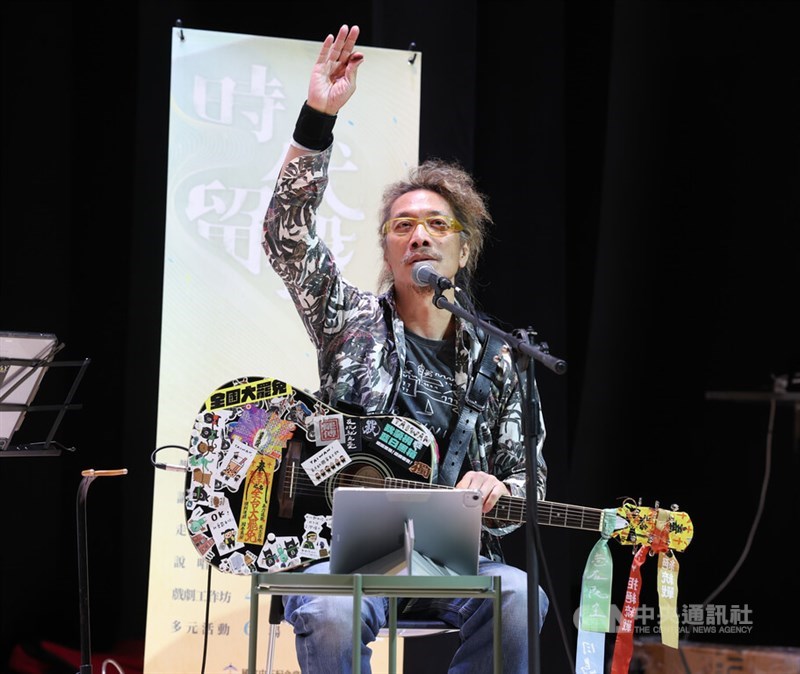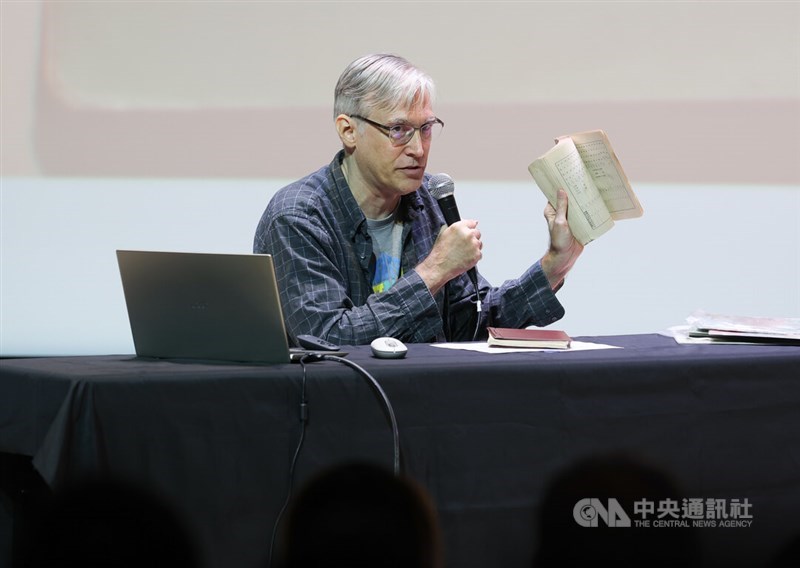
Taipei, Aug. 31 (CNA) The National Chiang Kai-shek Memorial Hall held a concert Sunday featuring popular songs banned during Taiwan's authoritarian period, jogging memories for older listeners and offering rare glimpses for young audience members into music from the country's martial law era.
The free concert was held on the ground floor of the compound's main building, under the gaze of a massive statue of former President Chiang Kai-shek (蔣中正), whose regime imposed martial law in Taiwan in 1949.
Featuring a performance by veteran singer-songwriter "Pig Head Skin" (朱頭皮), whose real name is Chu Yueh-hsin (朱約信), and commentary from Eric Scheihagen, a researcher of Taiwanese popular music, the event was part of the memorial hall's series to push forward transitional justice.

Delving deep into the vault of Taiwanese popular music, the pair discussed the double entendres and purported hidden messages in the songs that caused them to be censored by the authorities.
Some of these songs had to have parts of their lyrics changed before they could be published in Taiwan, but were given the green light overseas, resulting in two different versions.
One such song was "Chih Hu Che Yeh" (之乎者也) by singer-songwriter Lo Ta-yu (羅大佑), a sneering criticism of the censorship system and the public's acquiescence to rampant music piracy at the time of its release in 1982.
While the original version of the now-classic piece released outside Taiwan included a verse that was a blunt attack on censorship and piracy, the Taiwanese version contained only an abstract depiction of the maladies it set out to tackle.
Other well-known pieces featured during the show included Chen Hsiao-yun's (陳小雲) "Dancing Lady" (舞女) and Yun Yi-yi's (云一依) "You Don't Love Me, but I Love You," allegedly banned as it was thought to be an analogy of Taiwan after the United States cut diplomatic ties with it in 1979.
According to Scheihagen, "Dancing Lady" was purportedly freedom-of-speech pioneer Nylon Cheng's (鄭南榕) favorite song, as Cheng believed the song was an analogy of Taiwan, which, like women who danced for a living, had long been exploited by foreign colonizers.

"Sometimes, bound by restrictions, the artists will try harder to adapt, giving birth to great art. This reflects the tenacity of human nature," Chu told CNA after the concert.
"Life finds a way," Chu added, quoting the movie "Jurassic Park."
Scheihagen told CNA that the songs are not only precious for their intrinsic artistic value, but also because they offer people glimpses into Taiwan's society at the time they were released.
"Some songs were banned even though their lyrics appeared completely harmless," Scheihagen said.
"We should cherish the freedom we enjoy today, not having to worry about being punished or arrested just for singing a song," Scheihagen said.
A participant surnamed Chen (陳), who teaches foreigners Mandarin, said she was surprised to learn that "Dancing Lady" was Cheng's favorite song.
"It's poetic and poignant at the same time," Chen said.
Chen said that Taiwan's precious democracy motivated her to learn about the censored songs and the reasons behind their censorship.
"The reasons some songs were banned were simply wild," she said, adding that she intended to share some of what she learned at the event with her foreign students.
-
Culture
Czech author reflects on cultural erasure under authoritarian rule
02/22/2026 04:35 PM -
Society
Nantou forest fire contained after 7 days; cause under investigation
02/22/2026 01:39 PM -
Culture
Director Tsou Shih-ching challenges gender norms in 'Left-Handed Girl'
02/22/2026 11:04 AM -
Society
Taiwan headline news
02/22/2026 09:43 AM -
Society
Highs of 25-30°C and sun forecast for Taiwan Sunday
02/21/2026 07:22 PM